G I GURDJIEFF
George Ivanovich Gurdjieff, born in the last quarter of the nineteenth century, was a Greek Armenian mystic who observed that humanity was getting more and more mechanical and automated. He pointed out that human beings are easily given to suggestibility, a condition he felt was killing personal inquiry and the passion to know the truth for oneself through experience. Gurdjieff claimed that deep conditioning and mechanicality i.e. the human condition in general, are akin to a state of waking sleep. Driven by a resolve to discover the truth about human life on earth, he set out to understand the inner workings of the human body and mind, and devised practical methods to make his disciples comprehend these facts for themselves.
With the deep intent to find the truth for himself, he undertook several journeys, at times with a group of friends and at times all by himself, mostly to the East. He travelled to Egypt, the Gobi Desert, India, Tibet and China. read more →
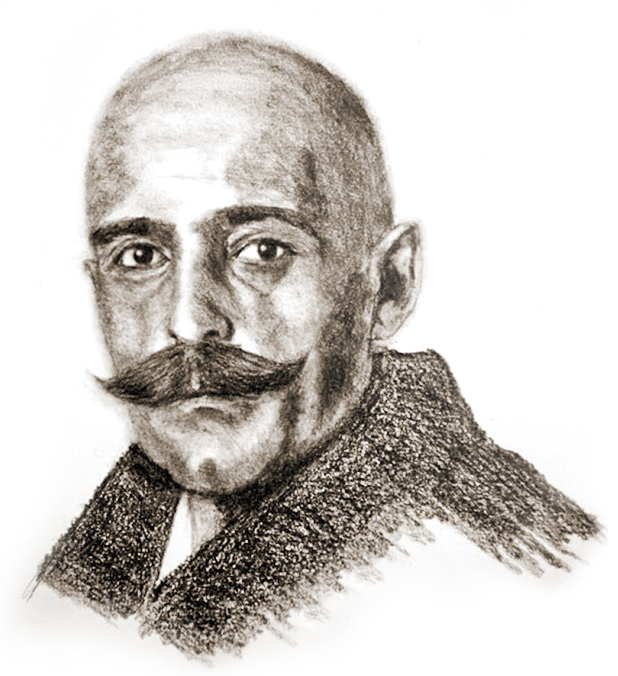
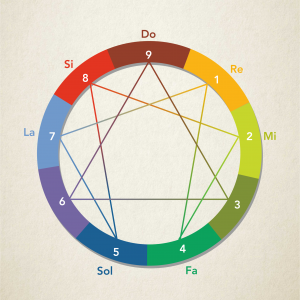
The Fourth Way
The Fourth Way (also known as The Work) is the name given to the teachings and method developed by Mr. Gurdjieff. The Fourth Way does not offer fixed answers, certainty or dogma. It is a unique synthesis of ancient teachings brought by Gurdjieff for modern humanity.
Like many ancient teachings, the Fourth Way starts with the idea that we are asleep and do not even begin to live up to our extraordinary potential as human beings. Its first aim is to awaken us to ourselves as we are with a real and intense honesty that can bring about transformation. read more →
Madame de Salzmann
Jeanne de Salzmann was born in 1889 in Reims, France and raised in Geneva, Switzerland. She married Alexandre de Salzmann, a well-known Russian painter, in 1912, who lived in Tiflis in the Caucasus mountain region of southern Russia. There she met Gurdjieff in 1919, became committed to his work, and remained close to him until his death in Paris thirty years later.
Before his death, Gurdjieff charged Mme. de Salzmann to live to be “over a hundred” in order to establish his teaching. He left all his rights, with respect to his writings and dance exercises called the Movements, to her. read more →
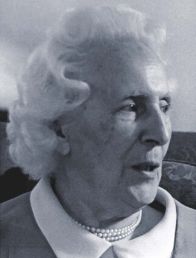
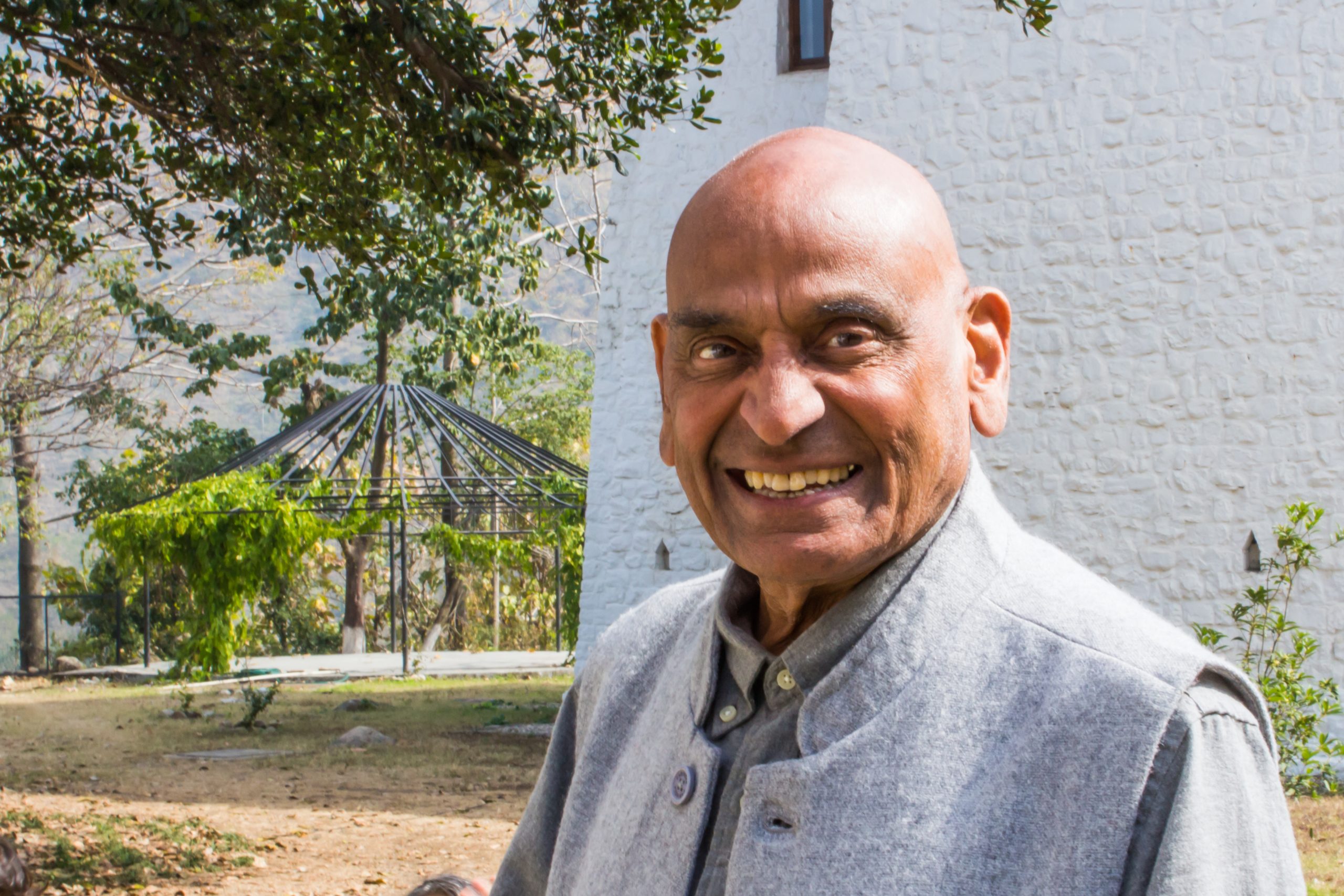
Ravi Ravindra
Ravi Ravindra has been the guide of the Gurdjieff Foundation of India since its inception in 2002.
He was born in Patiala, India in 1938 and obtained his early education in India. After earning a B.Sc. and a Master of Technology from IIT (Indian Institute of Technology), Kharagpur, he received a Master of Science and a Ph.D. in Physics from the University of Toronto, with the support of a Commonwealth scholarship. Later he did an M.A. in Philosophy. He held post-doctoral fellowships in Physics at the University of Toronto, in The History and Philosophy of Science at Princeton University, and in Religion at Columbia University. read more →
Gurdjieff India
The Gurdjieff Work-Group in India was formed in Delhi in 2002 under the guidance of Dr. Ravi Ravindra, followed by groups in Bangalore, Pune, Mumbai, Chennai and Delhi NCR. The members of the All India Group meet twice a year for extended Work Periods of 4-7 days. These Work Periods are held once in North India and once in South India, usually in the months of September and February respectively. Ravi Ravindra and Priscilla Murray, along with Rick Sharpe, Cynthia Taylor, Bill McKibbon and Desirée Greene, senior members of the Gurdjieff groups, have nourished the Work in India by their frequent participation. read more →
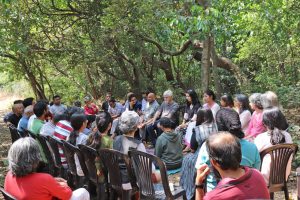
Forms of the Work
Work in silence

The word meditation is interpreted differently in different traditions. In the Gurdjieff Work, the practice of Quiet Work, or Work in Silence was introduced to a small and select group of people by Madame de Salzmann. It is generally referred to as a ‘sitting’ or a ‘morning preparation’. It involves a guided exploration into a state of relaxation in order to become sensitive to the breath and other subtle movements of energy in the body. read more →
Work in movements

Movements are an important form of work on oneself and are particular to the Gurdjieff teaching. These are definite and precisely given postures which are practiced in tandem with music composed by Gurdjieff and Thomas de Hartmann. Work in Movements is done under the guidance of a Movements teacher and with a group of fellow searchers. The Movements are not meant to be learnt or practiced alone. read more→
Work with ideas

The objective of the Gurdjieff Work is the arousal of conscience. Gurdjieff challenged the commonly held notion that human beings have the will and the ability to act consciously. He points out that the average person is like a machine that reacts to life in a conditioned manner, and not consciously. These conditioned reactions produce a variety of images that are far removed from reality, each of which asserts itself to be its ‘me’. read more →
Work in Music

‘In the course of his search to understand all facets of human nature, Gurdjieff became convinced that the music of different cultures both preserved and revealed essential characteristics of those cultures and also conveyed deeper meanings rooted in their traditions. He possessed an extraordinary capacity for remembering the intricate melodies he heard during the twenty years he spent living and traveling. read more →
Excerpts
G I GURDJIEFF

George Ivanovich Gurdjieff, born in the last quarter of the nineteenth century, was a Greek Armenian mystic who observed that humanity was getting more and more mechanical and automated. He pointed out that human beings are easily given to suggestibility, a condition he felt was killing personal inquiry and the passion to know the truth for oneself through experience. Gurdjieff claimed that deep conditioning and mechanicality i.e. the human condition in general, are akin to a state of waking sleep. Driven by a resolve to discover the truth about human life on earth, he set out to understand the inner workings of the human body and mind, and devised practical methods to make his disciples comprehend these facts for themselves.
With a deep intent to find the truth for himself, he undertook several journeys, at times with a group of friends and at times all by himself, mostly to the East. He travelled to Egypt, the Gobi Desert, India, Tibet and China. read more →
The Fourth Way

The Fourth Way (also known as the Work) is the name given to the teachings and method developed by Mr. Gurdjieff. The Fourth Way does not offer fixed answers, certainty or dogma. It is a unique synthesis of ancient teachings brought by Gurdjieff for modern humanity.
Like many ancient teachings, the Fourth Way starts with the idea that we are asleep and do not even begin to live up to our extraordinary potential as human beings. Its first aim is to awaken us to ourselves as we are with a real and intense honesty that can bring about transformation. read more →
Madame de Salzmann

Jeanne de Salzmann was born in 1889 in Reims, France and raised in Geneva, Switzerland. She married Alexandre de Salzmann, a well-known Russian painter, in 1912, who lived in Tiflis in the Caucasus mountain region of southern Russia. There she met Gurdjieff in 1919, became committed to his work, and remained close to him until his death in Paris thirty years later.
Before his death, Gurdjieff charged Mme. de Salzmann to live to be “over a hundred” in order to establish his teaching. He left all his rights, with respect to his writings and dance exercises called the Movements, to her. read more →
Ravi Ravindra

Ravi Ravindra has been the guide of the Gurdjieff Foundation of India since its inception in 2002.
He was born in Patiala, India in 1938 and obtained his early education in India. After earning a B.Sc. and a Master of Technology from IIT (Indian Institute of Technology), Kharagpur, he received a Master of Science and a Ph.D. in Physics from the University of Toronto, with the support of a Commonwealth scholarship. Later he did an M.A. in Philosophy. He held post-doctoral fellowships in Physics at the University of Toronto, in The History and Philosophy of Science at Princeton University, and in Religion at Columbia University.
Ravi Ravindra is now Professor Emeritus at Dalhousie University, Halifax, Nova Scotia, Canada, from where he retired as Professor and Chair of Comparative Religion, Professor of International Development Studies, and Adjunct Professor of Physics. read more →
Gurdjieff India

The Gurdjieff Work-Group in India was formed in Delhi in 2002 under the guidance of Dr. Ravi Ravindra, followed by groups in Bangalore, Pune, Mumbai, Chennai and Delhi NCR. The members of the All India Group meet twice a year for extended Work Periods of 4-7 days. These Work Periods are held once in North India and once in South India, usually in the months of September and February respectively. Ravi Ravindra and Priscilla Murray, along with Rick Sharpe, Cynthia Taylor, Bill McKibbon and Desirée Greene, senior members of the Gurdjieff groups, have nourished the Work in India by their frequent participation. read more →
Forms of the Work
Work in silence

The word meditation is interpreted differently in different traditions. In the Gurdjieff Work, the practice of Quiet Work, or Work in Silence was introduced to a small and select group of people by Madame de Salzmann. It is generally referred to as a ‘sitting’ or a ‘morning preparation’. It involves a guided exploration into a state of relaxation in order to become sensitive to the breath and other subtle movements of energy in the body. read more →
Work in movements

Movements are an important form of work on oneself and are particular to the Gurdjieff teaching. These are definite and precisely given postures which are practiced in tandem with music composed by Gurdjieff and Thomas de Hartmann. Work in Movements is done under the guidance of a Movements teacher and with a group of fellow searchers. The Movements are not meant to be learnt or practiced alone. read more→
Work with ideas

The objective of the Gurdjieff Work is the arousal of conscience. Gurdjieff challenged the commonly held notion that human beings have the will and the ability to act consciously. He points out that the average person is like a machine that reacts to life in a conditioned manner, and not consciously. These conditioned reactions produce a variety of images that are far removed from reality, each of which asserts itself to be its ‘me’. read more →
Work in Music

Music played important role in Gurdjieff’s teaching along with Ideas and Movements. Music has the potential to elevate our emotional sensitivity and awareness. In his autobiographical writings Gurdjieff describes his great admiration for the musical abilities of the ashokhs or travelling bards, a profession of his father, which had fascinated him as a young boy in Kars, Turkey. read more →




